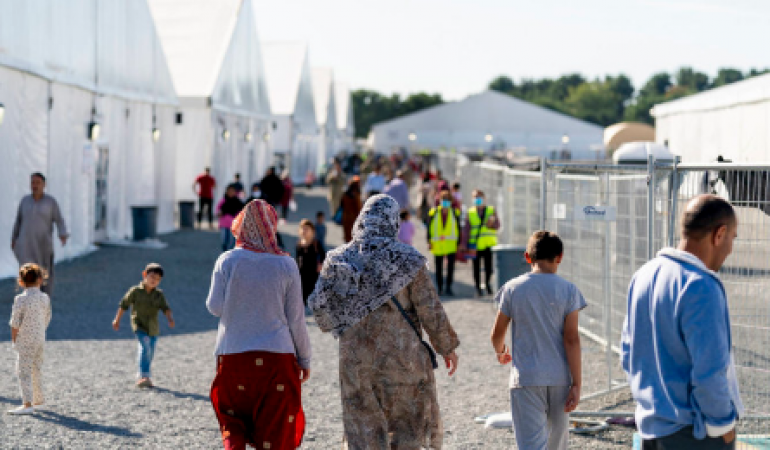
Washington: In a concerning development, a report released by the US State Department's Inspector General on Thursday reveals that over 840,000 Afghans who have applied for the Special Immigrant Visa (SIV) program are still in Afghanistan. This program, established by the US government, aims to provide visas to Afghans who have worked alongside the US government or its allies in Afghanistan.
The report underscores the dire situation faced by these applicants, as the number of SIV applications has surged by 50% since the Taliban took control of Afghanistan in August 2021. However, only about 100,000 Afghans have been resettled in the United States since that time.
The slow pace of the SIV resettlement program can be attributed to a host of complex factors, including security concerns, bureaucratic hurdles, and a shortage of funding. The security situation in Afghanistan has deteriorated significantly under Taliban rule, with harsh restrictions imposed on women and girls and reports of human rights abuses. These conditions have made travel to the United States for resettlement both difficult and perilous for Afghan applicants.
The bureaucratic delays plaguing the SIV program have also contributed to the backlog of applications. The State Department has been overwhelmed by the sheer volume of requests, resulting in sluggish processing times. Furthermore, a dearth of funding has hampered the program's effectiveness. The US Congress has not allocated sufficient funds to fully support the program, forcing the State Department to prioritize certain applicants, particularly those facing imminent threats from the Taliban.
Also Read: Asia Cup 2023: India-Pakistan Showdown Promises Fireworks
These findings represent a significant setback for the Biden administration, which had previously committed to resettling 125,000 Afghans in the United States. While the administration has expressed its commitment to addressing the challenges confronting the SIV program, the timeline for resettling all Afghan applicants remains uncertain.
Additionally, the report raises serious concerns about the program's future. The Taliban has declared its refusal to recognize the SIV program and has issued threats against Afghans who have applied for it. These ominous warnings could further complicate and endanger the prospects of Afghans seeking resettlement in the United States.
The 840,000 Afghans still in Afghanistan face a perilous and uncertain future. They remain vulnerable to persecution by the Taliban and have limited avenues for escape. The Biden administration is under increasing pressure to take decisive action to aid these Afghan applicants and ensure the SIV program's continued operation.
Also Read: Russia Deploys Sarmat ICBM: Putin's Warning and Global Implications
Challenges and Complexities:
Immediate Needs and Long-Term Solutions
Addressing the plight of the 840,000 Afghan SIV applicants still in Afghanistan necessitates immediate action and long-term strategies:
the report highlighting the plight of over 840,000 Afghan SIV applicants still in Afghanistan underscores the urgency of addressing their dire situation. The multifaceted challenges, from security concerns to bureaucratic delays and funding shortages, require a concerted and immediate response.
Also Read: G20 Summit 2023: Joe Biden and Narendra Modi to Hold Bilateral Meeting on Sept 8
The Biden administration faces a significant test in fulfilling its commitment to resettling Afghan applicants and should explore diplomatic avenues to secure their safety. The international community, too, has a role to play in supporting these vulnerable individuals as they seek refuge and a chance for a better future.